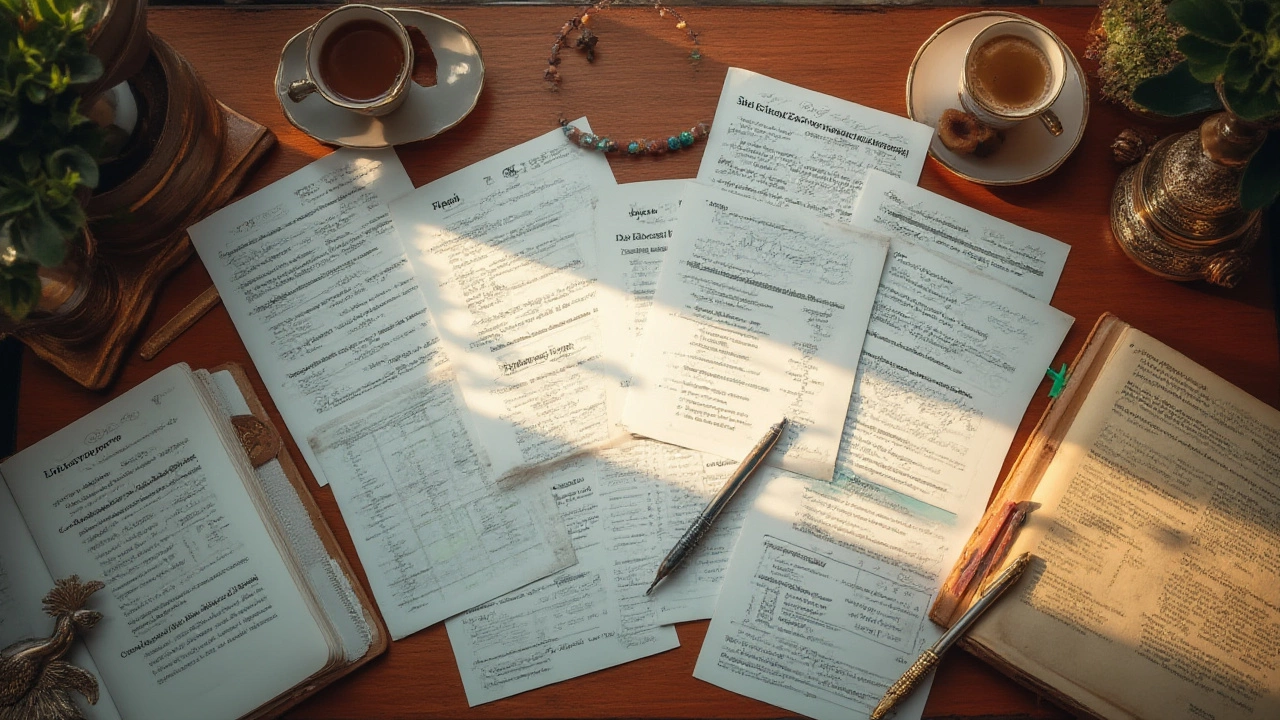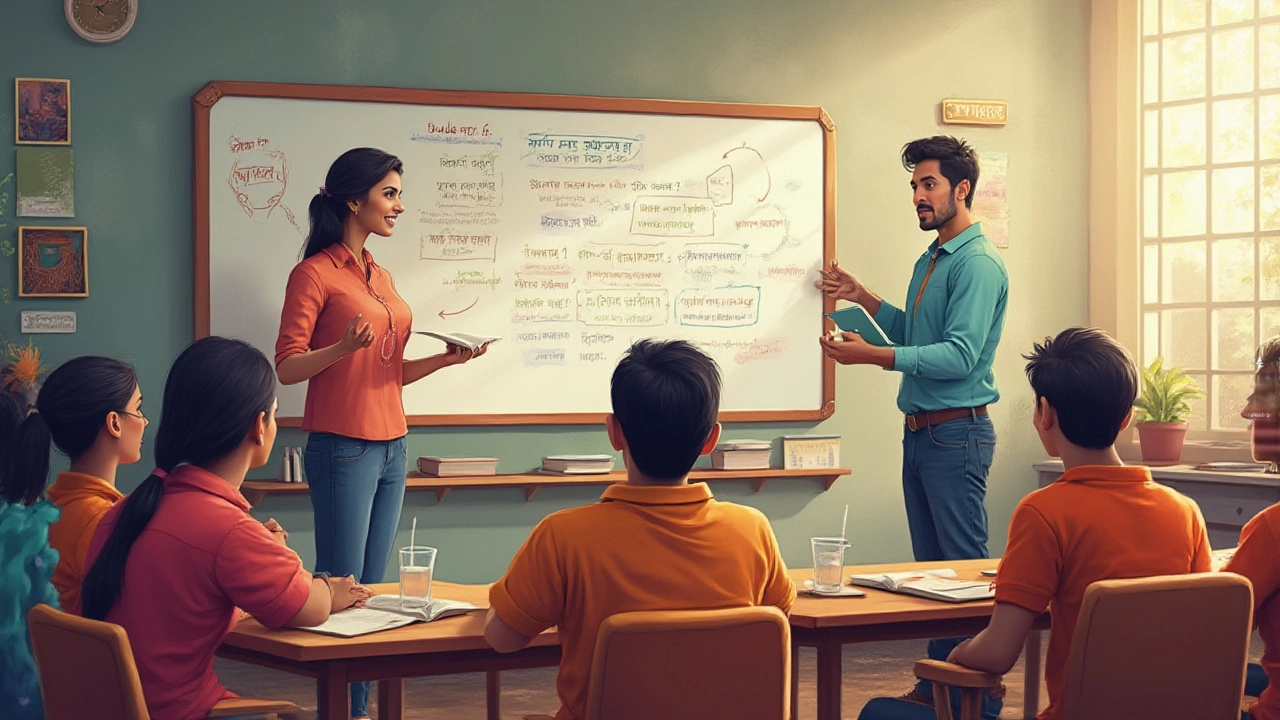Picture this: it’s a quiet evening, and you’re cramming for JEE Mains. You look up at the sea of books on your shelf but still wonder—have you picked the right one? If you’ve asked yourself this, you’re not alone. Every year, more than a million students wrestle with book recommendations, conflicting opinions, and flashy covers promising overnight success. It makes sense—your book choice isn’t just a purchase; it’s the first big step in your journey towards one of India’s toughest exams.
The Jaw-Dropper: Does One Book Even Exist?
It sounds tempting, right? One magic book to make your JEE dreams come true. But here’s the hard truth: no single book covers it all. Every aspirant searches for the so-called holy grail, but if it really existed, JEE wouldn’t have an acceptance rate below 1%. What students often overlook is that JEE Mains isn’t just about solving problems; it’s about mastering concepts, applying logic, and building exam temperament.
If someone tells you there's a book that checks every box, ask them how many times they've actually seen someone rely on just that. In practice, top rankers always mention using a mix of core textbooks, reference books, and previous years’ question banks. Take Physics, for example—H.C. Verma’s "Concepts of Physics" is almost a rite of passage. But do you know what else is? Practicing problems from D.C. Pandey or I.E. Irodov for advanced concepts. The key is variety; you need explanatory material, practice-based books, and real exam questions. If you’re angling for one book that does all this, you’ll likely miss out.
For Chemistry, ask any JEE qualifier and they’ll tell you: ignore NCERT at your own peril, especially for Inorganic. Physical Chemistry? O.P. Tandon has your back, but you’ll still want to peek into Modern ABC for revision. When it comes to Mathematics, do yourself a favor—start with R.D. Sharma to learn the basics, but bring out M.L. Khanna or Cengage for higher-level practice.
The takeaway? Instead of chasing a mythical all-in-one book, focus on strategic choices. Get your basics down, then layer on the problem books for depth and speed.
Top Picks: Subject-Wise Book Recommendations
Okay, you want names. No sugarcoating, just what works. Here’s a breakdown that’ll actually help you build a solid foundation, section by section. These are the books that keep surfacing in interviews with top scorers, teachers, and IITians who’ve been through this grind.
- Physics:
- H.C. Verma - Concepts of Physics (Vol 1 & 2): Clear explanations, logical sequencing, and problem sets that take you from basic to Olympiad level.
- D.C. Pandey Series (Arihant): Each topic gets dedicated treatment. Especially useful for those who like bite-sized problem-solving drills.
- I.E. Irodov - Problems in General Physics: For application and theory combined but mainly for advanced students focused on perfection.
- Chemistry:
- NCERT Textbooks: Absolutely non-negotiable for Inorganic and Organic basics.
- O.P. Tandon - Physical & Organic Chemistry: Works nicely for detailed chapters, quick summary tables too!
- Modern ABC Chemistry: Great for revisions and clear, exam-relevant explanations.
- Mathematics:
- R.D. Sharma - Mathematics for Class 11 & 12: Best for first-time learners aiming for clarity.
- Cengage Mathematics Series: Popular for its variety in question formats—MCQs, integer-based, and subjective.
- M.L. Khanna - IIT Mathematics: Notoriously tough, but rewarding—you’ll grow in confidence and skill.
See the trend? Start with the basics, move to advanced, then cement with previous years’ papers. For most students, these combos have been tried and tested, and they do the job.

Why Book Choice Matters More Than You Think
Imagine reading five different books for every subject. It sounds smart, but you end up scattered, overwhelmed, and nowhere close to mastery. The trick isn’t just picking a book; it’s choosing the one you’ll actually finish. Consistency beats variety every single time.
Books stick with you when you actively use them—annotate, solve in the margins, create flashcards. In a famous 2022 survey by an IIT alumni network, more than 70% of rankers admitted using just two to three primary books per subject. Why? Depth trumps breadth. They found it more effective to solve the same problems again and again, clearing doubts with teachers or peers instead of shopping for more books.
Another overlooked aspect? Edition and accuracy. Publishing houses update their books every few years, tweaking problem sets and sometimes, unfortunately, introducing typos. It’s smart to check for recent editions—especially with shifting JEE patterns and syllabus tweaks after 2021. For instance, Cengage Mathematics 2024 has improved its algebra section based on student feedback. Small updates can mean the difference between guessing and knowing.
Books like H.C. Verma’s are also packed with conceptual questions and practicals—don’t just read explanations, try to get hands-on with the experiments. JEE has a nasty habit of throwing real-world, logic-based questions, so practice applying knowledge, not just cramming.
Tips for Making the Most of Your Study Material
Getting the right book is just the opening move. What really sets toppers apart is how they use what they have. If you want to squeeze every drop from your materials, here are some hacks the best use—all simple, none requiring a tutor by your side.
- Active Notes: Make rough notes as you go, not at the end. Jot down summary points, important formulas, and new tactics. Quick reviews save loads of revision time.
- Error Book: Keep a separate notebook for mistakes you repeat. Each time a question trips you up, copy it down with the correct solution and a one-line explanation for the error. Review this more than the solved ones.
- Topic Tagging: Group similar problems (easy, moderate, tough) and tag them. When exam panic hits, practice one set instead of random sampling.
- Timed Sessions: The JEE isn’t just about the right answer—the clock matters. Use stopwatches for problem-sets; increase pace gradually instead of sprinting on day one.
- Peer Learning: Share and discuss tricky problems with friends. One guy’s hack is another guy’s a-ha moment.
- Previous Year Papers: No, don’t just collect them. Set up mock tests the same way as the actual exam: same duration, strict rules. Analyze where you lose time, get tricked, or make silly mistakes.
Combine these with the right books, and you’ll start seeing knowledge gaps shrink. Remember, the JEE tests how well you recover from setbacks—so practice turning mistakes into learning moments.

Comparing Popular Books: What the Data Says
Numbers don’t lie, right? Here’s a quick look at actual student preferences based on a recent poll from a leading coaching institute. It’s easy to drown in opinions, so check this table for a reality check on which books get heavy usage, and for which subjects:
| Book Title | Subject | Percent of Toppers Using (%) | Editions Available (2022-2025) |
|---|---|---|---|
| Concepts of Physics (H.C. Verma) | Physics | 94 | 2022, 2023, 2024 |
| D.C. Pandey Series | Physics | 82 | 2022, 2023, 2024, 2025 |
| Problems in General Physics (I.E. Irodov) | Physics | 38 | 2022 |
| NCERT Chemistry | Chemistry | 99 | 2022, 2023, 2024 |
| O.P. Tandon Chemistry | Chemistry | 76 | 2022, 2024 |
| Modern ABC Chemistry | Chemistry | 51 | 2023, 2025 |
| R.D. Sharma Mathematics | Mathematics | 87 | 2023, 2024 |
| Cengage Series (Math) | Mathematics | 69 | 2022, 2023, 2024, 2025 |
| M.L. Khanna | Mathematics | 32 | 2022 |
The Best book for JEE Mains is often one that forms the backbone of your study routine, but as you can see, overlap is heavy among successful candidates, especially with Physics and Chemistry basics. New editions usually iron out errors and add latest pattern questions—a solid reason not to rely on old hand-me-downs.
To wrap things up, remember—books are only as good as the time (and honest effort) you invest. Eyeballing those covers won’t solve tricky integrals or chemical equilibria for you. Get strategic with your book choices, give each your full attention, and you’ll be surprised how far you can push your score.
